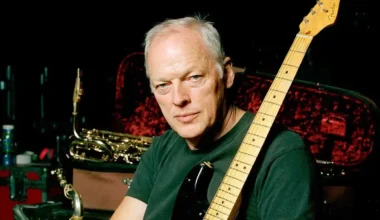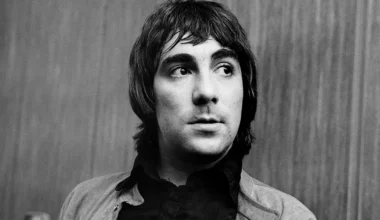Led Zeppelin has always been a unique phenomenon. They may have been the band that surpassed an ailing Beatles in the late 1960s. But similar to the Liverpudlian group, their composition was intricate, with a variety of personalities contributing to their cultural impact. The quartet known for their iconic song ‘Stairway to Heaven‘ can be divided into two groups, with Robert Plant and Jimmy Page leading each camp.
After The Yardbirds disbanded, guitarist and producer Page remained committed to his vision of creating rock music that was darker, more esoteric, and richer than ever before. In pursuit of this goal, he embarked on the formation of a new band called ‘The New Yardbirds’. Before long, they would transform into Led Zeppelin, but first, he had to assemble the right group of musicians.
Interestingly, Page initially wanted Terry Reid to be the lead singer of the new band. However, Reid, who was a highly influential singer-songwriter, turned down the offer due to his prior commitments with The Rolling Stones and Cream. As a result, he discovered a talented individual who was gaining recognition in the West Midlands. The talented singer was Plant, and he had been gaining experience in the Band of Joy and Hobbstweedle. He agreed to Page’s offer and suggested his close friend and former Band of Joy drummer, John Bonham. He was also brought on board.
During this crucial phase of searching for the perfect team, Page carefully considered hiring various individuals. Nevertheless, when former Yardbirds bassist Chris Dreja decided he no longer desired to be a part of the band and pursued a career in photography, John Paul Jones, a former associate of Page’s from the London session scene, expressed interest in joining. He was the missing link that completed the puzzle.
It’s quite evident that two factions would emerge within Led Zeppelin, despite the band members having a strong bond. Both Robert Plant and Bonham hailed from the Black Country. A region with a distinct culture and background, which set them apart from Jones and Page. The latter two had established themselves as highly skilled session musicians in the bustling music scene of the capital city.
It didn’t take long for the two prominent figures in the local music scene to realize that they were no longer the top dogs when compared to Jones and Page. Since then, Plant has acknowledged that he was initially intimidated by the idea of being in the presence of such greatness. Even though he had always aspired to be a part of it before joining.
Coming from a contrasting background, Plant faced difficulties collaborating with Jones, the bassist and multi-instrumentalist, throughout Zeppelin’s career. This distinction became apparent even during the band’s initial rehearsal in Chinatown. As the members discussed which songs to play, Jones found himself at a loss. He lacked knowledge due to his detached session work.
During an interview with Classic Rock in 1982, Plant expressed his belief that the band would never reunite following the end of Zeppelin. He emphasized the importance of Bonham, who had played a crucial role in the group’s dynamic. However, the focus then shifted to whether the completion of the group’s work implied that future collaborations with Jones or Page were no longer possible. Then, the singer mentioned that collaborating with the other person was always challenging because of their different backgrounds.
Plant admitted that collaborating with Jonesy was a challenge due to his lack of attention to the lyrics. I used to discuss a song, and he would inquire. ‘Which song are you referring to? And I would say: ‘You know, the one on Presence’. And he would apologize, expressing his lack of familiarity with the titles, and inquire about the key in which it was played. I’d respond with a puzzled tone: “I’m not sure, Jonesy.”
However, Robert Plant made it clear that he longed for his former bandmates. He mentioned that the remaining members had been friends for a long time. And despite their differences, he genuinely missed their musical talent and unique personalities.









1 comment
Terry Reid had nothing to do with Cream. Where did you get that info? Page, while forming the idea for Zeppelin, asked Jack Bruce to be a bassist vocalist but he turned it down. Perhaps there’s your confusion with regard to Cream.